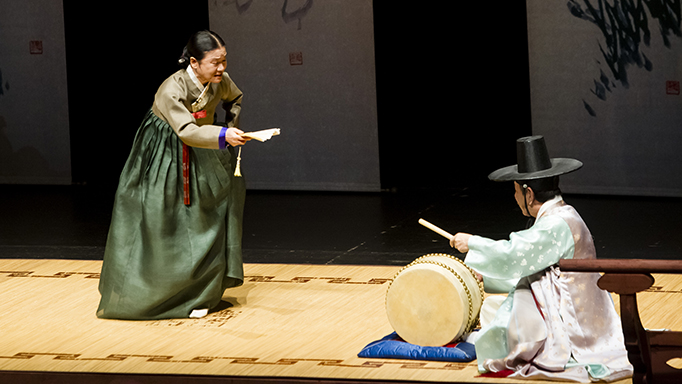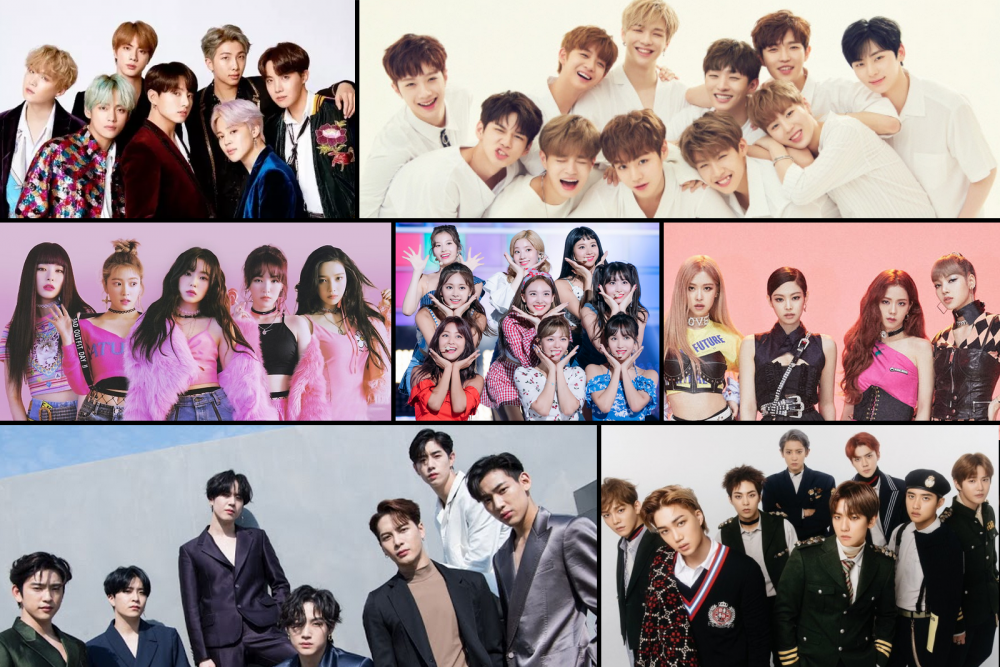안녕 everybody~
Welcome to the sixth blog post of this semester!
This week we will be covering Korea's Music Culture, by far the longest meeting we have had throughout the whole semester (a whopping 3-hour discussion!).



Welcome to the sixth blog post of this semester!
This week we will be covering Korea's Music Culture, by far the longest meeting we have had throughout the whole semester (a whopping 3-hour discussion!).
To start off this discussion, we discussed whether Korea has its own sound identity. Mars added that before the K-pop we know now was established, it was just seen as something that was filled with autotune, more dancing and having near to none music quality while now we see that it's considered as an artistic industry with there redeeming qualities. PJ added on by saying it's hard to find a true authentic music sound as there are different types of influences from their neighbouring countries.

We then moved on to 판소리 (Pansori), a part of the Korean musical genre that is a musical storytelling performance by a singer and a drummer. We discussed the possibilities of Pansori becoming modern musically as we saw that it can be performed with modern lyrics. Yoorim answered that it wouldn't be possible as the whole point of Pansori itself is to deliver the feelings/expressions through your own voice. So the only things musically necessary to perform Pansori is one's voice and a drum. Jun simply answered "no". Mars said that if there were additional effects to the music, maybe it would make it more relatable to the 21st century but the weight and gravity will not be the same compared to the original performance of Pansori.
We continued further on how the treatment between classical and modern music would be slightly different. Depending on the listeners but the overall feeling's we feel from classical and modern music is different.
We then asked each other what music was like in our individual hometowns. Dori talked about how Black music is different from classical music where her culture focused on teaching to remember the past, drilling it into their heads to never forget about what happened in the past. PJ said that the younger generation in Thailand prefer modern music in their culture since it's new and western and popular amongst their peers but it depends on their taste as there are still a good amount of people who are into traditional music. Mars was trying to think of what exactly traditional music sounds like in Malaysia as only a handful of people play traditional Chinese instruments (she knew only one person who plays the string instruments). She said that the traditional arts were slowly dying as Chinese opera theatres were closing down due to a lack of interest as it was considered old and time-consuming to practice.

We then moved onto the main topic of this week, Trot Music! We discussed about why Korean trot was suddenly starting to boom all over Korea. Yoorim talked about how the broadcasting companies were switching up their targets to the older generation as they knew that they watch more television shows compared to the current generation. Jun said that they were going back in time in terms of how they were setting their trends. Minjeong stated that the trend for Korean trot was there but what really started the boom was the show called 미스트롯 (Miss Trot). PJ talked about how the traditional music was brought to modern time which made the younger generation curious about those types of songs they would hear, this trend would last for a while but due to continuous new releases of songs, it would slowly but surely die out. Mars highlighted the features of a trot song which is that it is simple and fun to sing and follow. Some songs may be cringe but it's a lovely cringe (similar to western 80s music). The popularity can be seen since younger singers would try and implement trot styles into their music, making a fusion of a modern trot song.

We lastly talked about idols in Korea. We discussed whether there was a stigma of "idol music" in Korea. Minjeong said that the reason for stigmatization differs depending on the generation. For example, it could because of the first generation of idol music was looked down upon because of the fandom culture or due to the songs that were popular at the time such as Ring Ding Dong and Gee being underrated due to the lyrics not being considered as "musical" lyrics. Mars agreed with Minjeong, especially in regards to the crazy fandom being an issue.
To end the topic, Dori showed us a music video of a newly debuted "K-pop" group called KAACHI. After seeing this group, the main question became: "Are they really considered a "K-pop" group?"
You can check out their group here https://www.youtube.com/watch?v=1NWzao4xf1E
What do you think? Are they a K-pop group?
That wraps up this weeks topic!
Comments
Post a Comment